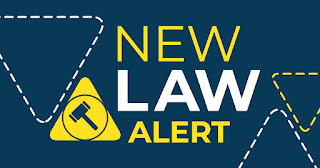On April 7, 2020 Judge Marks issued a memorandum to all trial court justices and judges outlining his plan for reopening the trial courts to non-essential matters beginning on Monday April 13, 2020. A full copy of the memorandum can be found HERE.
Judge Marks' April 7, 2020 memorandum states:
Going forward, the existing prohibition on the filing of new non-essential matters will continue. However, although our planning is ongoing, starting next Monday, April 13, we will take certain preliminary steps to open up access - remote access - to the courts for non-essential pending cases. This means that judges should review their case inventories to identify cases in which court conferences can be helpful in advancing the progress of the case, including achieving a resolution of the case. Judges can also schedule conferences at the request of the attorneys, and can be available during normal court hours to address discovery disputes and other ad hoc concerns. The conferences will need to be conducted remotely, by Skype or by telephone. Judges' personal staff will be able to assist judges remotely, as needed.
New York State courts have been closed to non-essential matters since March 22, 2020 when Chief Administrative Judge Lawrence K. Marks issued Administrative Order 78/20, which we blogged about HERE.
What will change on Monday, April 13?
Immediately, it appears that the courts are finding success in their remote operations for essential matters are looking to expand those capabilities to non-essential matters which make up the bulk of the caseload in the trial courts. Not only does the memorandum permit judges to conduct remote conferences on cases that are already pending before them, it encourages them to do so. Judges can schedule conferences and parties can request them as well.
The memorandum advises judges to examine their calendars, prioritize cases that will benefit from conferences, decide pending motions to clear backlogs, and to reduce their dockets while there are no new filings.
The big takeaway is that judges' chambers will be staffed and operational - conducting conferences and resolving motions to help clear their dockets. Your pending lawsuits are no longer frozen and progress will be made.
What don't we know?
There are some key limitations in this memorandum that cannot be overlooked:
Going forward, the existing prohibition on the filing of new non-essential matters will continue.
It is clear that as of now, you cannot commence a new action in NYS courts (you can commence a new action in the Federal courts). That means no new lawsuits in NYS courts. It is not clear, however, if that means you can file new papers on pending actions. For instance, it is unclear if you are permitted to file a new motion on a pending action, or even an answer to a complaint that was already filed and served. For now, existing administrative and executive orders tolling time limitations still control.
What to expect going forward.
Judge Marks realizes that a total freeze on court operations is unnecessary. While in-person appearances in a judge's courtroom or chambers are sometimes necessary for a civil matter in the Supreme Court, it is rarely mandatory. Remote conferences can handle most preliminary conferences, discovery disputes, and status conferences. In-person appearances are unnecessary to resolve most motions, and oral argument can be conducted over Skype, Zoom, etc. Civil parts in the Supreme Court can operate at nearly 100% capacity without opening their doors to the bar.
I expect Judge Marks to reopen the civil parts of the Supreme Court in stages, gradually increasing their capacity until everything except trials can move forward while the rest of the country remains closed due to COVID-19.
Courts that heavily rely upon in-person appearances, such as landlord-tenant court and the housing court, will be slower to reopen, but those actions are stayed anyway so there is less emphasis on figuring out remote operations for those parts.
Look for continuing guidance from Judge Marks and local administrative Judges later this week and early next week.
Can any of this become permanent?
It is no secret that it is exceptionally difficult to force large institutions to adopt opportunities presented by advances in technology. For example, even though we have electronic filing, attorneys still need to appear in person to file physical motion papers in some courts that are too stubborn to change their old procedures. Even though some states permit telephone conferences, some courts in New York force attorneys to appear in their courtroom just to tell the judge that they are on schedule with their discovery and don't need any help from the court. That is a waste of time, money, and the courts' limited resources.
Perhaps the changes forced by COVID-19 will open the courts' eyes to the increased efficiency and productivity that technology can bring to our stubborn industry. Listen to our podcast about the future of the courts HERE - Court System is Archaic | Modernization Needed ASAP.









